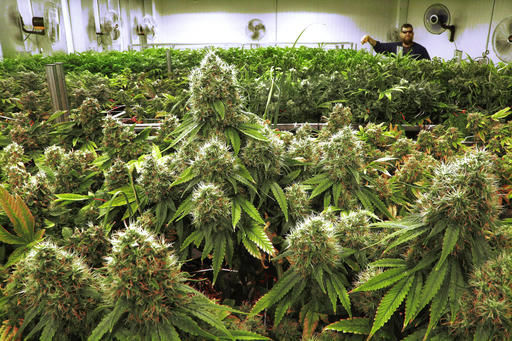PHOENIX — The Arizona Supreme Court has agreed to decide whether extracts of marijuana used to make edible products, now being sold at state-licensed dispensaries, are in fact legal.
In a brief order this week, the justices said they want to hear arguments by attorneys for Rodney Jones about why his 2013 conviction for possession of illegal drugs and 2½-year prison term are contrary to state law.
Robert Mandel, one of Jones’ lawyers, said his client is a medical marijuana patient, entitled by the 2010 voter-approved Arizona Medical Marijuana Act to obtain up to 2½ ounces of marijuana every two weeks. Jones had a jar containing 0.05 of an ounce of hashish, a resin made from the plant.
In a divided ruling last year, the state Court of Appeals upheld his conviction. The majority said the law that legalized marijuana for medical purposes allows patients to possess only forms of the plant itself — flowers, leaves and seeds — and not the resin or anything made from that.
But Mandel, in asking the high court to review the conviction, said this is about more than his client.
He pointed out that the Arizona Department of Health Services has for years allowed — and regulated — the sale of alternate forms of marijuana through state-regulated dispensaries. These range from candy and gummy bears to oils.
Will Humble, who was state health director when voters approved the law, filed an affidavit with the Supreme Court saying the rules he wrote, in consultation with the Attorney General’s Office, were based on the belief that the statute allowed for alternate forms of the drug.
Humble dismissed the contention by Yavapai County Attorney Sheila Polk, whose office prosecuted Jones, that hashish is legally different than other marijuana extracts now used to make edibles. In both cases, he said, it’s a preparation. “It started with the marijuana flower and ended up with hashish.”
The issue of the state having given its blessing to the sale of edibles prepared from extracts eventually resulted in Attorney General Mark Brnovich, whose office normally would handle the appeal to the Supreme Court, backing out of trying to get the high court to uphold Jones’ conviction. Instead, Brnovich has taken the position that the justices should review the issue to provide guidance.
That left defending the conviction to Polk, who wants the justices to uphold the rulings of the trial court and the Court of Appeals.
A hearing date has not been set.





